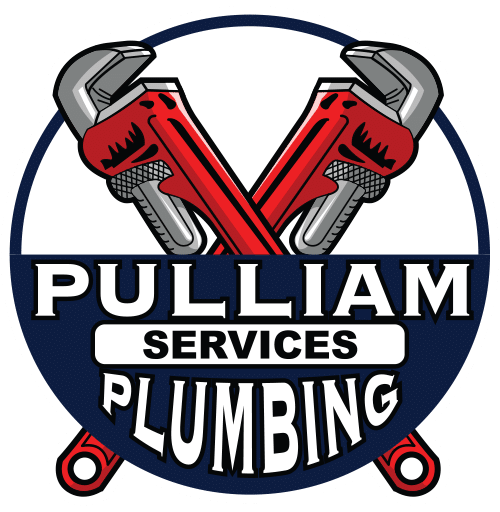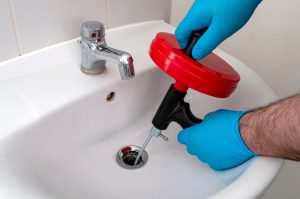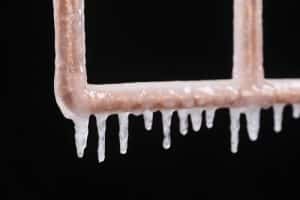Hard water is a common issue that affects many households throughout the United States and can lead to various problems related to your home’s plumbing, appliances, and overall comfort. As the highest-rated plumbing company in Boerne and Fair Oaks, Texas, Pulliam Plumbing is dedicated to providing educational, informative, and helpful content to bring awareness to hard water concerns and offer effective solutions for maintaining a healthy and efficient plumbing system.
In this guide, we will explore the concept of hard water, focusing on its causes, its impact on your home, and the available treatment options to minimize or eliminate its adverse effects. Through our expert insight, we aim to empower homeowners with the knowledge needed to address hard water concerns and maintain a comfortable and clean living environment for their families.
Stay tuned as we explore the essential aspects of understanding hard water, its impact on your home, and the available solutions to protect your plumbing system, appliances, and family’s comfort. Trust the team at Pulliam Plumbing to be your guide and partner in maintaining a healthy, efficient, and clean living environment.
As we delve deeper into hard water, it’s crucial to explore its causes, impacts on your home, and the available solutions. With Pulliam Plumbing’s guidance, you can make informed decisions and effectively address hard water concerns in your home.
1. Causes of Hard Water
Hard water primarily results from dissolved minerals in your tap water. The most common minerals in hard water include calcium and magnesium, which dissolve into the water supply as it passes through rock formations, such as limestone and dolomite. The concentration of these minerals determines the hardness of the water. Geological factors, water sources, and local water treatment practices can all contribute to the varying water hardness levels across different areas.
2. Impact of Hard Water on Your Home
Hard water can have several negative effects on your home’s plumbing system, appliances, and overall comfort. Here are some of the impacts to be aware of:
– Pipe Scaling: Mineral buildup in your pipes, also known as scaling, can narrow the passage for water flow, leading to reduced efficiency, increased water pressure, and a higher likelihood of damage or leaks.
– Appliance Damage: Water heaters, dishwashers, and washing machines can all suffer from mineral buildup due to hard water, reducing their efficiency and shortening their lifespan.
– Unpleasant Stains and Residue: Hard water can cause unsightly stains on fixtures, glassware, and dishes, as well as leave residues on shower walls and bathtubs.
– Reduced Soap and Detergent Efficacy: Hard water reacts with soaps and detergents, forming a “soap scum” that reduces the effectiveness of cleaning products and can leave your skin and hair feeling dry and dull.
3. Water Softening Solutions
One of the most effective ways to address hard water problems is by installing a water softener in your home. Water softeners work by exchanging the calcium and magnesium ions in hard water with sodium or potassium ions, effectively “softening” the water. There are several types of water softeners available, and their benefits include:
– Ion Exchange Softeners: These water softeners use ion exchange to remove calcium and magnesium ions from the water and replace them with sodium ions.
– Salt-Free Softeners: Salt-free water softeners do not use ion exchange but instead alter the structure of the minerals through template-assisted crystallization (TAC), preventing them from forming scale deposits.
– Magnetic or Electronic Descalers: These devices use electromagnetic waves to change the behavior of mineral ions, reducing their ability to stick to surfaces and form scale deposits. While not as effective as ion exchange or salt-free softeners, they can provide an affordable, low-maintenance option for dealing with hard water.
4. Filtering and Conditioning Systems
Aside from softening, other solutions are available for treating hard water, focusing on filtering and conditioning. These systems typically focus on reducing impurities and contaminants in the water:
– Reverse Osmosis Systems: Reverse osmosis filters effectively remove dissolved minerals, heavy metals, and other contaminants through a semi-permeable membrane, providing purified water for drinking and cooking.
– Activated Carbon Filters: These filters use activated carbon to trap contaminants and impurities, reducing odors, tastes, and chlorine levels in the water.
– Combination Systems: Some water treatment systems combine the benefits of softening, filtration, and conditioning for a comprehensive solution. These systems may include an ion exchange softener, a reverse osmosis filter, and an activated carbon filter.
Final Thoughts
Understanding the causes, impacts, and solutions for hard water is essential in maintaining a healthy and efficient plumbing system in your home. By being informed and proactive, you can choose the most suitable treatment option to address your hard water concerns, safeguarding your plumbing system, appliances, and family’s comfort.
At Pulliam Plumbing, we are committed to providing Boerne and Fair Oaks, Texas, residents with the highest quality plumbing solutions and resources to tackle hard water problems effectively. As your trusted plumbing partner, we can expertly guide you through selecting, installing, and maintaining the best water treatment solution for your home.
To learn more about how we can help you address hard water issues or to schedule an appointment with one of our plumbers in Boerne, TX, please contact us. We stand ready to serve your plumbing needs and ensure the long-term performance and efficiency of your home’s most critical systems.




